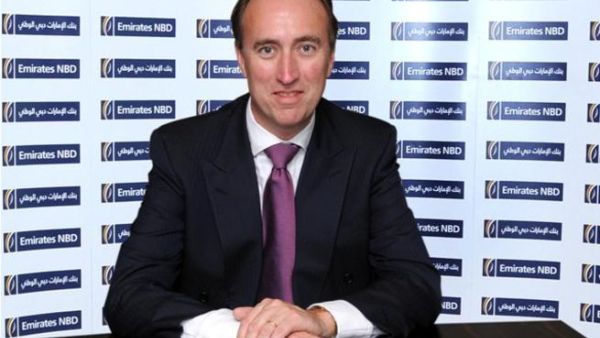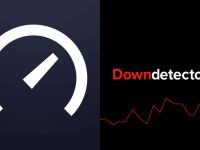Weekly market review by Emirates NBD CIO Private Banking Officer

Investors are battered and bruised. They would take any piece of good news just to stabilise the markets and bring some hope of a more sustained recovery. News that the French and German governments were back on speaking terms and almost speaking the same language helped the mood of the markets. A joint commitment to providing support for a rollover of Greek debt was a move in the right direction. Also helping the markets was news that the Japanese economy may be back on a more positive track was welcome news. Throw in slightly better than expected Chinese economic data and there are the makings of stability… at least for a week. Crumbs of comfort indeed.
The Eurozone gave an adequate picture of togetherness last week as the French and German governments agreed a near term way forward on the Greek debt situation. The agreement, which has yet to be agreed by EU finance minsters and the ECB, envisages a voluntary rollover of Greek debt. You just get the feeling that the new measures don’t solve anything they just buy time. Any EU agreement to support the Greeks will not mean anything if there is no credible Greek government. Prime Minister Papandreou will attempt again this week to form a new government. Without wishing to appear too cynical we remain concerned that latest round of EU strategies to keep the Eurozone together in its current form will founder. We see Greece’s problems as just too big for the country to absorb even with the aid of Eurozone togetherness. The rioting on the streets of Athens shows that the population remains worried about the pain that will need to be taken to right the economy within the rigidities of the Eurozone. Also the attempts by the Eurozone to control the contagion of the Greek situation into other parts of the Eurozone are somewhat failing. There have been tremendous pressures on the Spanish financial markets in the last week and the problems are spreading further; Italy suffered the ignominy of seeing Moody’s the credit rating agency put Italy on review for a possible downgrade of its credit rating citing challenges for economic growth.
It is worth reiterating that the headwinds for markets are not just coming from Greece. If you just stand back and look at the global situation you realise the challenges are with us for some time to come. Very few parts of the western world have yet to convince investors that they are truly on top of their structural problems. The US, Japan and Europe are burdened with debt that governments to-date have not addressed. Europe has contingent liabilities in the form of commitments to pension payments that they will struggle to pay without increasing taxes and reducing overall growth.
We hope that the markets will receive something of a boost in the coming weeks after the persistent sell off of the last six weeks. In the very near term there is some better news. Data from Japan last week showed that the recovery from the impact of the earthquake is well underway. Industrial production for April was revised up from +1.0% month-on-month to1.6%. Japanese manufacturing sector confidence recovered more sharply than expected in May. The Reuters Tankan survey reported a marked improvement in confidence amongst auto manufacturers which bodes well for the global auto industry following recent earthquake related shortages of components. US auto industry bodies are predicting anywhere between a 50% and 100% annualised increase in US auto industry output in the third quarter after the disaster of the second quarter. In the United States industrial production expanded in May by 0.1% slightly below expectations however industrial and consumer confidence surveys were below expectations. On the consumer side there will be a hope that the recent fall back in gasoline prices will have a positive impact on consumer spending and confidence in due course. In the United State the cost of a gallon of gasoline has fallen from a peak of $4.00 a gallon to $3.75 putting money back into the pockets of consumers. The markets will hope US households spend their savings from low gas prices.
Where can the more meaningful medium term positive surprises come from? It again comes back to central banks being more helpful, in either delaying further interest rate increases or reversing some of them. An emphatic peaking of inflation would be just the tonic that markets could enjoy. Last week both China and India’s authorities felt it necessary to tighten monetary policy to control the inflation risk in their respective economies. There is also a hope amongst economists that the global pause in the manufacturing sector may be coming to an end. Companies cut back their inventories in the wake of softer demand and the disruption to global supply from the Japanese earthquake. Through the next few months it is hoped that the manufacturing sector will go back to normal leading to a more consistent pattern of growth.
We recommend safety and security whilst investing in current market conditions. Cash, bonds and gold are your friends. In our internal strategy meetings we have tried to become more positive but have struggled to see sufficient reward for taking risk. Bonds remained your friend last week with US government bonds rallying. We don’t see too much in the way of further capital gains from ‘safe’ bonds unless the Greek situation lurches to another major crisis point and/or the US economic data deteriorates still further. Global equity markets have stabilised and our preference remains for the local markets where the news-flow remains generally upbeat. Whilst economists cut their US GDP forecasts –the IMF the latest to cut their forecast from 2.8% to 2.5% for 2011, forecasts for the MENA region are the same to higher for most economies.
Background Information
Emirates NBD
Emirates NBD, the leading banking group in the region, was formed on 19 June 1963, when H.H. Late Sheikh Rashid bin Saeed Al Maktoum signed the Charter of Incorporation of the National Bank of Dubai (NBD) which became the first National Bank established in Dubai and the United Arab Emirates (UAE). With the blessings of H.H. Sheikh Mohammed bin Rashid Al Maktoum, Vice President and Prime Minister of the UAE and Ruler of Dubai, NBD merged with Emirates Bank International (EBI) on 06 March 2007, to form Emirates NBD, the largest banking group in the region by assets. On 16 October 2007, the shares of Emirates NBD were officially listed on the Dubai Financial Market (DFM). The merger between EBI and NBD to create Emirates NBD, became a regional consolidation blueprint for the banking and finance sector as it combined the second and fourth largest banks in the UAE to form a banking champion capable of delivering enhanced value across corporate, retail, private, Islamic and investment banking throughout the region.






